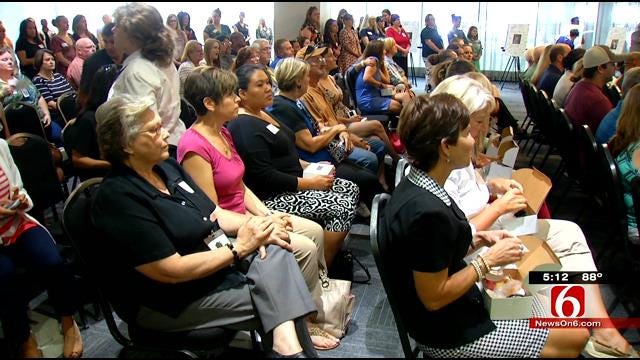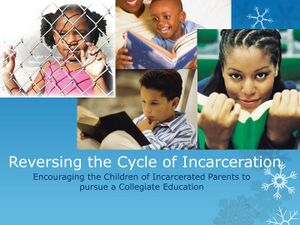Women in Recovery (WIR) is an evidence-based alternative to incarceration programs for women facing significant prison sentences in Tulsa County. The program, operated by Family and Children’s Servi...
Read more
Pathways to Reintegration: Breaking the Cycle of Incarceration
This Solution
needs your help
Region: Tulsa
Community Reentry Programs: Establish comprehensive reentry programs that provide support and resources for individuals transitioning from incarceration back into the community. These programs can include job training, educational opportunities, substance abuse treatment, mental health services, housing assistance, and mentorship programs. By addressing the specific needs of formerly incarcerated individuals, these programs can help reduce recidivism rates and promote successful reintegration.
Alternative Sentencing and Diversion Programs: Implement alternative sentencing options and diversion programs that focus on rehabilitation rather than incarceration for non-violent offenders. This can include drug courts, mental health courts, and specialized programs that provide treatment and support rather than punishment. By addressing the underlying issues that contribute to criminal behavior, these programs can help break the cycle of incarceration.
Education and Job Training: Increase access to education and job training programs, particularly for individuals at risk of incarceration or those with a history of incarceration. This can include vocational training, job placement services, and partnerships with local businesses to provide employment opportunities for individuals with criminal records. By equipping individuals with marketable skills, education, and job opportunities, the likelihood of reoffending can be significantly reduced.
Addressing Racial Disparities: Implement policies and initiatives to address racial disparities within the criminal justice system. This can involve training law enforcement officers to recognize and challenge unconscious biases, promoting fair and equitable practices in policing, and ensuring that sentencing guidelines are applied consistently and without racial bias. Additionally, fostering community dialogue and collaboration can help build trust between law enforcement and communities disproportionately affected by the cycle of incarceration.
Access to Mental Health and Substance Abuse Treatment: Improve access to mental health and substance abuse treatment services both within the criminal justice system and in the community. This can include expanding treatment options, establishing specialized treatment courts, and providing comprehensive support for individuals with co-occurring mental health and substance use disorders. By addressing the underlying issues that contribute to criminal behavior, individuals can receive the help they need to break the cycle of incarceration.
Community Support and Reintegration: Foster community support networks and resources for individuals reentering society after incarceration. This can involve collaboration with community organizations, faith-based groups, and local businesses to provide mentoring, housing assistance, transportation, and social support networks. By creating a supportive environment, individuals can successfully reintegrate into society, reducing the likelihood of reoffending.
Projects working towards this solution
Link/Delink Project

This solution resolves following problems
Link/Delink Problems

The cycle of incarceration in Tulsa is influenced by several factors, including poverty, racism, mental illness, and drug addiction. More than 35% of north Tulsa’s population lives in poverty compa...
Read more
Solution Gallery
Solution Videos
